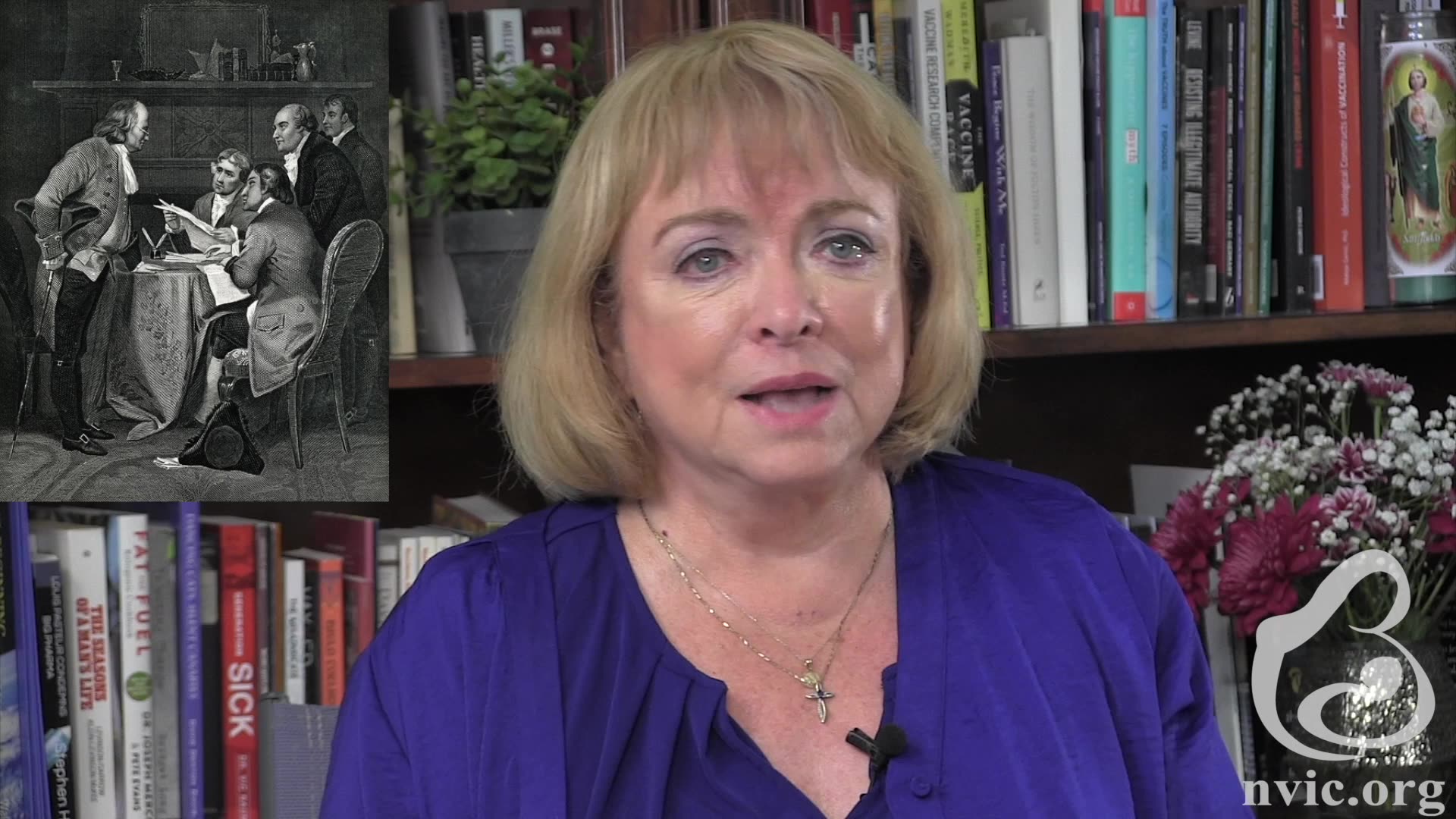Conflicts of interest have become more the rule than the occasional exception. Even the trusted US Centers for Disease Control and Prevention (CDC) receives heavy funding from industry.
How this conflict of interest may have affected the organization’s decisions is the topic of an article1 in the British Medical Journal (BMJ), penned by the journal’s associate editor, Jeanne Lenzer, who notes:
The Centers for Disease Control and Prevention (CDC) includes the following disclaimer with its recommendations:
CDC, our planners, and our content experts wish to disclose they have no financial interests or other relationships with the manufacturers of commercial products… CDC does not accept commercial support.
The CDC’s image as an independent watchdog over the public health has given it enormous prestige, and its recommendations are occasionally enforced by law.
Despite the agency’s disclaimer, the CDC does receive millions of dollars in industry gifts and funding, both directly and indirectly, and several recent CDC actions and recommendations have raised questions about the science it cites, the clinical guidelines it promotes, and the money it is taking.
Is the CDC Protecting the Private Good Rather Than the Public?
When confronted about the discrepancy between the CDC’s public disclaimer and the reality that corporate funding is flowing into the organization, Tom Frieden, director of the CDC, responded, saying:
Public-private partnerships allow CDC to do more, faster. The agency’s core values of accountability, respect, and integrity guide the way CDC spends the funds entrusted to it.
When possible conflicts of interests arise, we take a hard, close look to ensure that proper policies and guidelines are followed before accepting outside donations.
In other words, the CDC believes, and “assures” you, it has the moral backbone to do the right thing, despite the fact that studies have revealed moral fiber tends to significantly deteriorate as soon as a funding source with an agenda starts doling out money.
Moreover, a 2009 investigation by the Office of the Inspector General concluded the CDC has “a systemic lack of oversight of the ethics program,” noting 97 percent of disclosure forms filed by the organization’s advisors were incomplete, and 13 percent of advisors didn’t file one.
Did Industry ‘Buy’ CDC Recommendation for Expanded Hepatitis C Screening?
External funding to the CDC in the form of industry “gifts” was authorized in 1983—nearly 40 years after the organization’s inception in 1946. After the passing of legislation in 1992 that encouraged relationships between the CDC and industry, the non-profit CDC Foundation was formed in 1995.
Last year, this Foundation received $12 million from private corporations, and the CDC itself received another $16 million in funding earmarked for special projects from companies, manufacturers, and various philanthropists. “For example, in 2012, Genentech earmarked $600 000 in donations to the CDC Foundation for CDC’s efforts to promote expanded testing and treatment of viral hepatitis. Genentech and its parent company, Roche, manufacture test kits and treatments for hepatitis C,” Lenzer writes.
Since 2010, when the CDC and the CDC Foundation formed the Viral Hepatitis Action Coalition, manufacturers of hepatitis C tests and treatments have donated more than $26 million to the coalition.
In addition to Genentech, donors include: Abbott Laboratories, AbbVie, Gilead, Janssen, Merck, OraSure Technologies, Quest Diagnostics, and Siemens.
Two years later, in 2012, the CDC issued guidelines recommending expanded screening for hepatitis C for everyone born between 1945 and 1965, saying newer antiviral drugs can effectively halt disease progression.
However, “the science behind cohort screening has been challenged and is said to be ‘the subject of major debate.’ The scientific debate along with the price tags of the newer drugs (over $84 000 per treatment course for the new drug sofosbuvir), raise questions about CDC’s industry funding,” Lenzer writes.
CDC Recommendations Increasingly Skewed
The CDC and the CDC Foundation also received monies from Roche for the creation of the CDC’s “Take 3” flu campaign, again raising questions about the influence of funding on its drug recommendations.
Genentech, the manufacturer of the controversial and dangerous influenza drug Tamiflu, is a member of the Roche Group.
Step 3 in the CDC’s flu campaign advises you to “take antiviral medicine if your doctor prescribes it.” In an article titled, “Why CDC Recommends Influenza Antiviral Drugs,” the agency cites a number of studies supporting its recommendation, including a recent meta-analysis published in The Lancet.2
The problem with that, Lenzer points out, is that the CDC describes this study as “independent,” when in fact it was sponsored by Roche. Moreover, all of the four authors have financial ties to Roche, Genentech (both of which sell Tamiflu), or Gilead (which holds the patent).
In addition to that, the CDC did not include last year’s systematic review3 of 83 trials conducted by the Cochrane Collaboration, which is the “gold standard” for independent research analysis.
Was this analysis ignored because it concluded Tamiflu alleviates symptoms of the flu by less than 17 hours, has limited effect on your risk of pneumonia, no effect on adult hospital admissions, and causes nausea, vomiting, headaches, renal problems and psychiatric syndromes?
According to the Cochrane group: “The trade-off between benefits and harms should be borne in mind when making decisions to use oseltamivir [brand name Tamiflu] for treatment, prophylaxis, or stockpiling.”
Another issue is this: CDC director Tom Frieden has stated that taking Tamiflu might save your life, yet the US Food and Drug Administration (FDA) has warned Roche it cannot claim the drug reduces pneumonia or deaths as they’ve never produced any evidence for that claim.
But who needs scientific evidence when the CDC is making off-label claims for you? “Shannon Brownlee, senior vice president of the Lown Institute and former journalist covering the CDC, told
The BMJ, “This looks like classic stealth marketing, in which industry puts their message in the mouths of a trusted third party, such as an academic or a professional organization,” Lenzer writes.
FDA: The Poster Child for Industry Bias
The Food and Drug Administration (FDA) has also become notorious for its conflicts of interest and close ties to various industries, and there are many examples of this.
Last year, emails and letters between the FDA and Pfizer suggest the drug giant was given an inappropriate amount of leverage to decide when and how to tell the public about the hazards associated with its veterinary drug roxarsone.4 5
FDA researchers found low levels of inorganic arsenic in the livers of chicken who consumed the drug. Correspondence between Heidi Chen, then attorney in Pfizer’s animal health division, and William Flynn, the FDA’s deputy director for science policy at the Center for Veterinary Medicine, reveal the agency allowed Pfizer to edit the wording of a press release about the roxarsone data, and more.
Government Must Act to Protect Scientific Integrity
Getting back to the CDC, it was created and has been relied upon as anindependent agency without industry ties that might muddy the water in terms of the health and safety recommendations it issues. Now, it’s become apparent that not even the CDC can be counted on for unbiased science-based advice. So what, if anything, can be done to rectify the situation?
Considering the fact that CDC funding from industry was approved by the government, the answer, as noted by Jerome R Hoffman,6 methodologist and emeritus professor of medicine at UCLA, is to “get the government to reject this devil’s bargain, by changing the rules so this can no longer happen.” It’s simply unreasonable to believe that any organization will ignore its cash cows, and it’s equally naïve to believe that industry will continue donating money if the agency decides to do anything that even hints at cutting into industry profits.
For example, the NRA promptly withdrew its CDC funding when the agency began investigating gun violence.7 In summary, conflicts of interest endanger lives. People’s well-being become secondary to the corporate bottom line, and no organization or corporation is immune to the effects of conflicts of interest—not even the CDC. Even well-respected research universities like the University of Minnesota have fallen prey, relaxing research ethics to the point that research subjects die.8
Head of CDC Now Head of Merck Vaccines
The infamous revolving door between the government and the drug industry is another factor that has done an awful lot to destroy scientific integrity and government accountability. One classic example is Dr. Julie Gerberding, who headed up the CDC—which among other things is charged with overseeing vaccines—from 2002 to 2009 before becoming the president of Merck’s vaccine division, a position she currently holds today.
The influence her former high-level ties to the CDC wields is enormous, considering the fact that Merck makes 14 of the 17 pediatric vaccines recommended by the CDC, and 9 of the 10 recommended for adults. And while vaccine safety advocates are trying to rein in the number of vaccines given to babies, safety concerns keep falling on deaf ears. The vaccine industry is booming, and it’s become quite clear that profit potential is the driving factor behind it. It is this type of reprehensible and inexcusable behavior that makes it an enormous challenge to change this seriously flawed paradigm.
Note: This article was reprinted with the author’s permission. It was originally published on Dr. Mercola’s website at www.mercola.com.
References:











8 Responses
There is no such thing as “the public good”; it is a chimera. There is only the good of large numbers of individuals, deciding how best to achieve good health via informed consent after considering the variety of potential approaches for doing so.
Dr. Mercola is a licensed physician, but not an M.D. He is a D.O., Doctor of Osteopathy. Please correct the “MD” after his name. His website, Mercola.com, is a treasure trove of fascinating and useful information on health, much of which is hard to find elsewhere. He also writes astute and well informed posts on the politics of health and the financial forces that interfere with government agencies that are mandated to protect public health, and the media which claims to provide public interest information.
How many times do I have to say this “SynthetiC Chemicals can cure nothing” at best they only hide the symptoms at great harm to your health and LIFE !!!…
It is just scandalous how these “public institutions” get away with this behavior, and really harm the public they have been tasked to “protect”. As Duesberg exposes in his book, “Inventing the AIDS Virus”, they also have their own intelligence branch that gathers information on the public and others they deem a threat to their interests. Dusbergs career was torpedoed after he blew the whistle on Gallo, Popovic and Fauci and questioned the false premise that an RNA virus could be the cause of immune destruction or was infectious.
Oh, and thank you Joe, excellent article!
Their name is “Centers for Disease PREVENTION.” That means vaccines. Control refers to spin control. They’re a part of the military.
As for vaccines-relationship to BigPharma, look at what CDC officers own what patents.
http://www.actionlyme.org/NAVIGATION.htm
If a CDC officer patents DNA, they own it, and can license it to whoever. In the strictest sense, they are not in a relationship *WITH* BigPharma. Understand? They, the person-, does not have to reveal with whom they are in a relationship.
It’s about the CDC’s *STAFF* who are in relationships with BigPharma, not the CDC itself.
We have no protection against these criminals. The DOJ, well, they’re lawyers – not scientists. They are not mentally capable of determining research fraud, or know what is, or what isn’t, even possibly, a “vaccine.”
Soooo, bottom line is despite the overwhelming evidence over the years…. the collusion between big pharma and the ‘watchdogs’ out there goes on unabated and nothing gets done due to the political power of big business!
Sad state of affairs, where to from here??
As we like to say in the business world, “follow the money.” 95% of the time it gets you to the right answer.